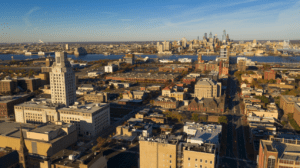
I filed a lot of public records requests when I was a journalist: ones around why a city lost water at the onset of a huge fire, police conduct records, emails between developers and elected officials.
Denials were routine, claiming public records exemptions like “ongoing investigation” or “personnel” or “what emails?”
But I was still surprised on arriving at Good Jobs First to learn how much information the public doesn’t get in deals involving their money — our money — being handed over to corporations in the name of economic development. Consider:
🔴 We often don’t get the name of the company that got the public subsidy.
🔴 We often don’t get the amount of money a company is getting via a public subsidy.
🔴 We often don’t get the location of the facility getting the public subsidy.
🔴 We often don’t get the number of actual jobs the company created for getting the public subsidy.
Are you mad yet?
I hope so, because that is the basic, minimum information every resident in every state should be able to access.
But let me tell you, some communities are agitating — and winning! — when it comes to getting more information.
In Camden, N.J., city residents had this idea — call it a hunch — companies that were getting heavily subsidized locally and by the state to locate in Camden weren’t actually creating jobs for the Camden residents turning over their hard-earned money.
They were right.
According to Pat Garofalo’s Boondoggle newsletter, Lockheed Martin received about $107 million in 2014, and claimed to create 229 jobs. THREE went to Camden residents.
And Conner Strong & Buckelew Companies, LLC, founded by New Jersey power broker George Norcross, and which received about $86 million in 2017, claimed 402 jobs. Six were Camden residents.
Meanwhile, it was Camden residents getting short-changed when it came to their students, their roads, their parks, their healthcare, their environmental protection.
And in Texas, there are these really bad corporate welfare programs called Chapter 380 and 381 for their place in the state’s tax code. They give companies largely strings-free, no-limits subsidies for years with little accountability.
Last summer, with public pressure mounting, state legislators voted to have the Comptroller create a database to let the public know which communities inked deals and how many.
Transparency means we can begin to hold companies and elected officials accountable.
If we know Tesla is seeking a subsidy, for example, we can weigh whether a centibillionaire should get public assistance at the expense of small businesses in the community.
If we know where Exxon wants to site a facility, we can make evaluations about whether it is or would contribute to asthma in a low-income town with high numbers of Black and Brown residents.
Sunshine Week, this week we draw attention to the need for easily accessible public information, is as relevant today as it was in 2005 when it started. It’s a chance to celebrate the wins of the Camdens and Texases and bipartisan coalitions of the world, to take a deep breath, and prepare to battle again tomorrow.